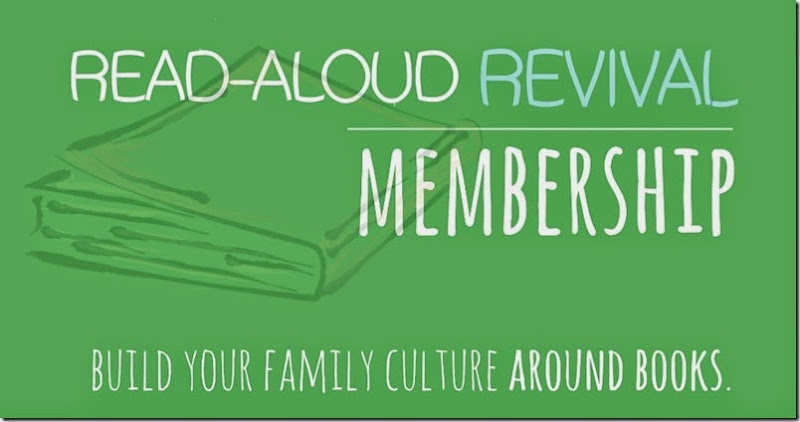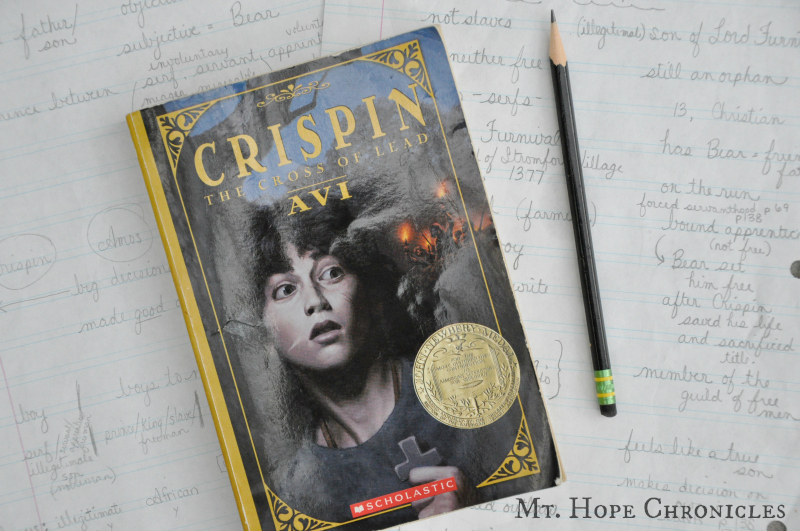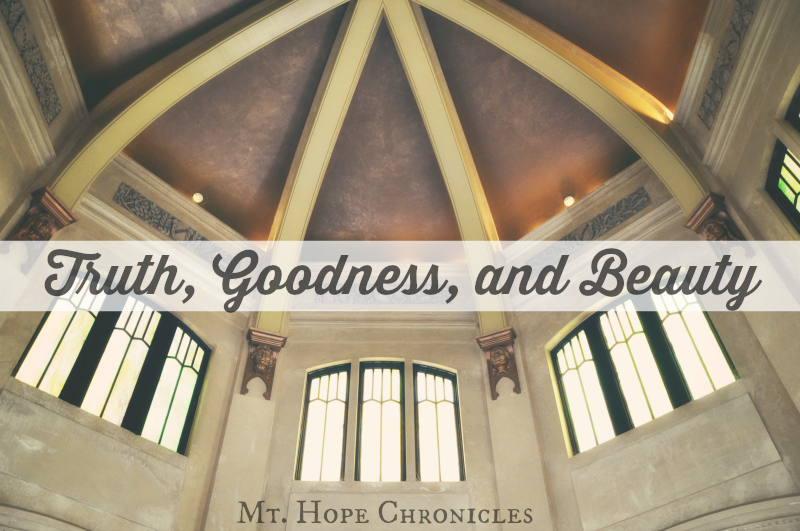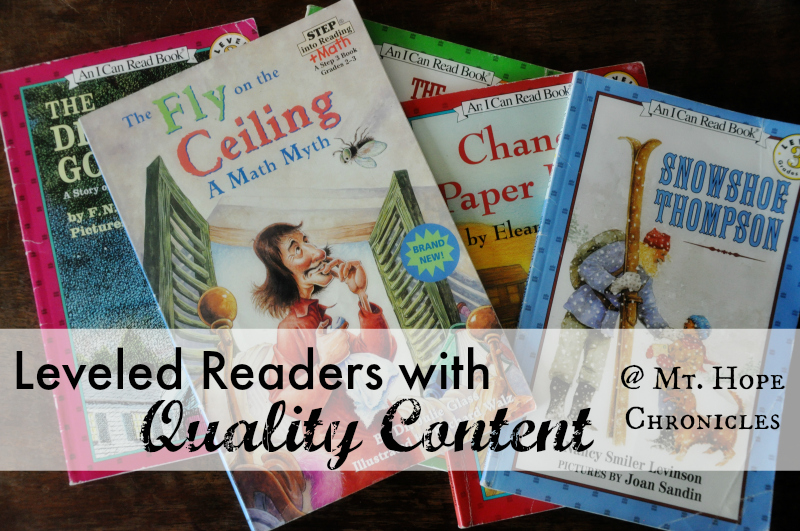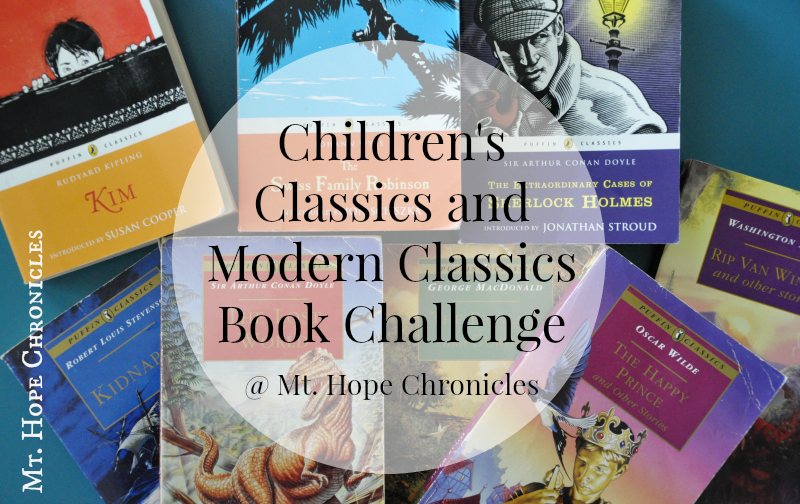
Books, books, books, reading, writing, discussing, books, books, books. Are you getting tired of book talk yet? [wink] I promise I’ll have more picture and adventure posts as our “school-year” commitments wind down at the end of April and the sun [please, oh please!!] begins to shine.
If you have read here at Mt. Hope Chronicles for longer than, say, a day, you know I adore book lists. I eat, sleep, drink, and breathe books lists.
I have my own book list challenge for 2015, and I’ve crossed a few more off the list in the past couple weeks. I notice a big difference in my reading habits when I have a book list. I don’t want to read just to cross off a book on a list, but I will admit it is a motivator.
This past week, a few things came up that made me want to make up a book list challenge for my boys. I’ve been running out of ideas for them, so they’ve been picking up books randomly. That isn’t a bad thing, but they could be reading better selections, and they are willing to do so if I hand them one.
1. I finished reading Honey for a Teen's Heart, and I adore it. I must review it this week.
2. I read this article about the differences in school reading lists for 8th graders in the year 1908 and today.
3. An online conversation reminded me of The New First Dictionary of Cultural Literacy: What Your Child Needs to Know by Hirsch. I got out my copy and started reading it again, beginning with the literature section (of course).
4. I was searching (as usual) on Amazon, and came across this Puffin Classics 16 Book Set containing the following books:
The Adventures of Huckleberry Finn by Mark Twain [Luke and Levi, audiobook]
The Adventures of Tom Sawyer by Mark Twain [Luke and Levi, read-aloud]
Alice's Adventures in Wonderland by Lewis Carroll [Levi read]
Black Beauty by Anna Sewell
The Call of the Wild by Jack London
Journey to the Centre of the Earth by Jules Verne
Just So Stories by Rudyard Kipling [Luke and Levi read]
King Arthur and His Knights of the Round Table by Roger Lancelyn Green [Levi and Luke have read other retellings]
A Little Princess by Frances Hodgson Burnett [Levi read]
Little Women by Louisa May Alcott [Levi read others by author]
Oliver Twist by Charles Dickens, (abridged) Introduction by Garth Nix [Levi and Luke listened to an abridged version]
The Secret Garden by Frances Hodgson Burnett [Levi and Luke read, Challenge A literature selection]
Treasure Island by Robert Louis Stevenson [Luke and Levi, read-aloud]
White Fang by Jack London [Levi read]
The Wind in the Willows by Kenneth Grahame [Levi and Luke, read aloud most of it]
The Wizard of Oz by L. Frank Baum [Levi read]
It doesn’t take much to inspire me to make a book list, and this put me over the edge. Must. Make. List.
Because, if a child read all the Puffin Classics, he or she would be well-read indeed. Add the Puffin Modern Classics? [swoon]
I don’t want to use this collection as a law or as some standard of achievement. It is simply this—here are some wonderful works of literary art in which children should have a chance to immerse themselves. Books with rich language and imagery, diverse time periods and geographical locations, interesting characters. Books that have withstood the test of time. Books that are oft-referenced in other literary works. Books and stories and characters that are found in parts and pieces throughout our culture.
[Of course, as soon as I started making this list, I read a fantastic blog post at Center for Lit about not letting a book list rule your educational plans and inevitably shame you. That is not my intention with this book list. Only read it if it is life-giving for you!]
As I perused the list of Puffin Classics and Modern Classics, I thought that I’d love to have my boys enjoy as many of these as possible by the end of their 6th grade year, before entering the Classical Conversations Challenge program in 7th grade. Levi has already read most of them, and he’ll make short work (or play, as the case may be) of the few he has left. I think Luke could read most of them by the end of the summer. I’ll save the ancient history related books for this coming school year when we head back to ancient history and literature.
My plan is that we will all read at least a couple together and use the Book Detectives model to discuss the stories and think about them more deeply.
We actually have a ton of Puffin Classics in our collection, and we have many of the Puffin Classics selections in other editions or audio book form. (It doesn’t matter to me which edition they read or listen to, but the Puffin Classics books are inexpensive and the above 16-book set is a great deal!)
I chose our next few read-alouds.
Alice in Wonderland and Through the Looking-Glass by Lewis Carroll
Peter Pan by J.M. Barrie [Read-aloud in progress]
Heidi by Johanna Spyri [Levi read]
I then made a list of Puffin Classics in addition to those listed above and marked whether Luke or Levi had read them.
[In no particular order after ancient and Medieval stories]
Tales of Ancient Egypt retold by Roger Lancelyn Green [Levi read]
Aesop's Fables [Levi and Luke read]
Tales of the Greek Heroes retold by Roger Lancelyn Green [Levi and Luke read other retellings]
The Tale of Troy (Homer) retold by Roger Lancelyn Green [Levi and Luke read other retellings]
The Odyssey (Homer) retold by Geraldine McCaughrean [Levi and Luke read other retellings]
Myths of the Norsemen retold by Roger Lancelyn Green [Levi read]
The Canterbury Tales (Chaucer) retold by Geraldine McCaughrean [Levi read?]
The Adventures of Robin Hood by Roger Lancelyn Green [Luke read]
Aladdin and Other Tales from the Arabian Nights [Levi read]
Tales from Shakespeare by Charles Lamb [Levi and Luke have read other retellings. I’d like them to finish the books by Leon Garfield.]
Hans Andersen's Fairy Tales [Levi and Luke have read other editions]
The Extraordinary Cases of Sherlock Holmes by Sir Arthur Conan Doyle [Levi and Luke read]
The Great Adventures of Sherlock Holmes by Sir Arthur Conan Doyle [Levi and Luke read]
The Happy Prince and Other Stories by Oscar Wilde [Levi and Luke read]
The Phoenix and the Carpet by Edith Nesbit (and all others by E. Nesbit) [Levi and Luke read]
The Princess and the Goblin by George MacDonald (and sequel) [Levi and Luke read, Leif is working on it!]
Pinocchio by Carlo Collodi [Luke and Levi, read aloud a few years ago]
What Katy Did by Susan Coolidge
Daddy-Long-Legs by Jean Webster
The Swiss Family Robinson by Johann D. Wyss [Levi read, Luke listened to audio book]
Kim by Rudyard Kipling [Levi read]
Rip Van Winkle & Other Stories by Washington Irving
King Solomon's Mines by H. Rider Haggard
Little Lord Fauntleroy by Frances Hodgson Burnett
Which classics would you add to the above list for children under 12 or 13?
I am having them wait on Red Badge of Courage (which they will read in Challenge I along with The Call of the Wild and Tom Sawyer) and abridged books (Dickens, Dumas, Bronte). They have read several abridged books and retellings so I’m not against them entirely, but I would rather they spent their time reading the other books on the list. We are currently reading A Tale of Two Cities (unabridged) by Dickens together (which they will read again in Challenge II along with Jane Eyre, Pride and Prejudice, Alice’s Adventures in Wonderland, and many others). The boys also have or will read retellings of classics (some of which they will read again in Challenge II) such as Beowulf, Canterbury Tales, Don Quixote, Gulliver’s Travels, Robinson Crusoe, and Pilgrim’s Progress.
Levi has read Anne of Green Gables, but I’ll probably just have all the boys watch the movies with me this summer. Everyone should watch the movies, even if they don’t read the books.
Then we have the Puffin Modern Classics, many of which my boys have already read.
* Are the ones the boys haven’t read
*Gentle Ben by Walt Morey [Levi read other books by the author. I won a contest with a Heidi (the book) themed shoebox diorama in 5th grade and was invited to attend an author event with Walt Morey, who lived in Oregon. I still have the two books he signed for me! But I digress…]
The Westing Game by Ellen Raskin
A Long Way From Chicago by Richard Peck
Sadako and the Thousand Paper Cranes by Eleanor Coerr
The Devil's Arithmetic by Jane Yolen
The Twenty-One Balloons by William Pene du Bois
Tales of Uncle Remus: The Adventures of Brer Rabbit by Julius Lester
Pippi Longstocking by Astrid Lindgren
Charlie and the Chocolate Factory by Roald Dahl
*To Be a Slave by Julius Lester
*Summer of My German Soldier by Bette Greene
Adam of the Road by Elizabeth Janet Gray [Levi read]
My Side of the Mountain by Jean Craighead George
*Roll of Thunder, Hear My Cry by Mildred D. Taylor
I have so many more books I would add to the modern children’s classics list! But attempting my own must-read modern children’s classics list at the moment would be like falling down a rabbit hole.
Enough list-making. Let’s go read!

